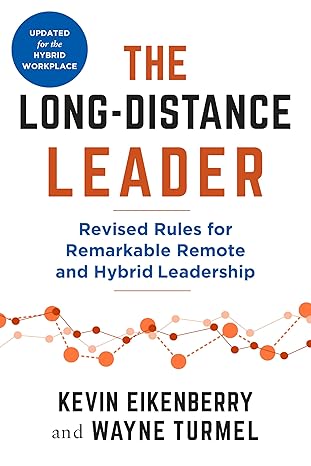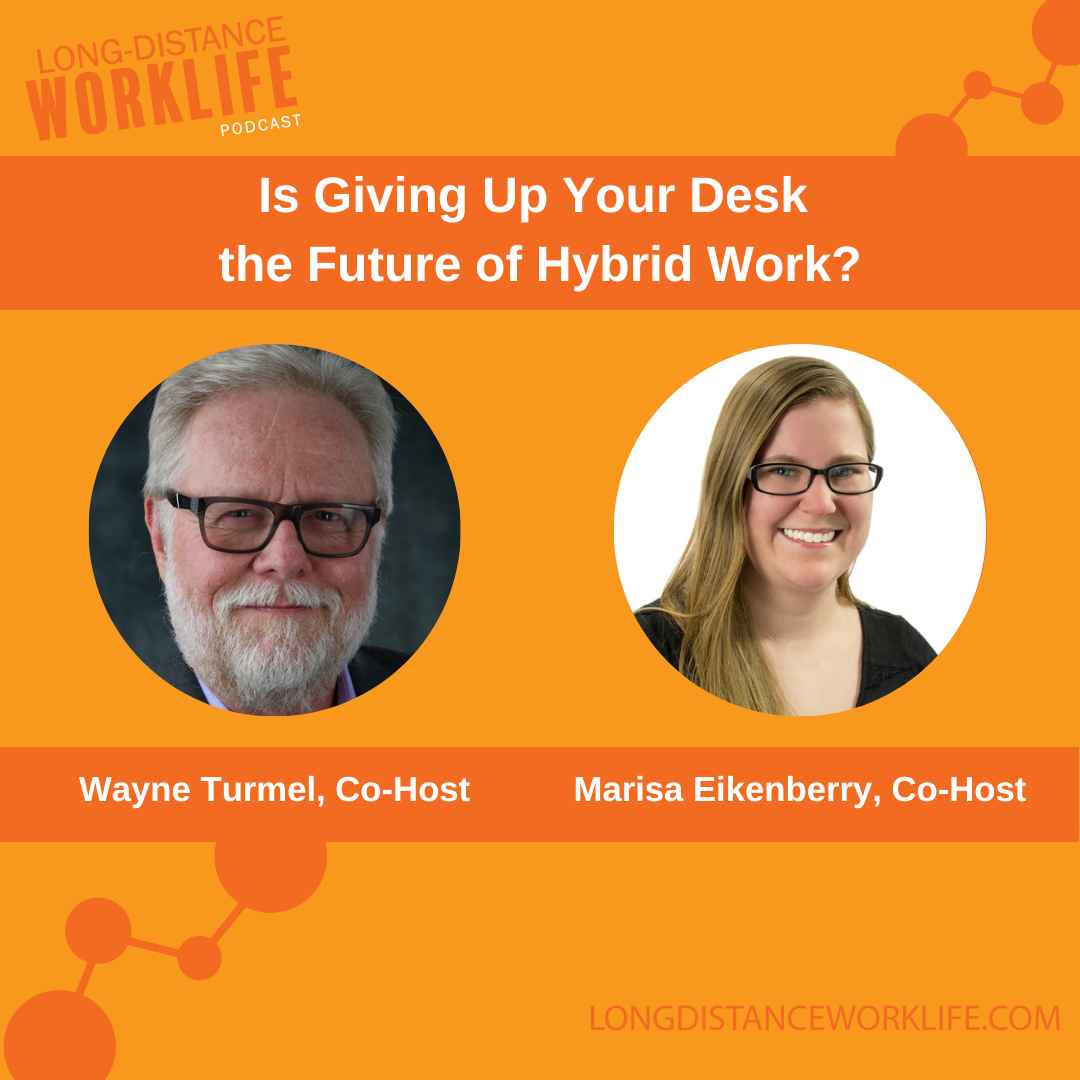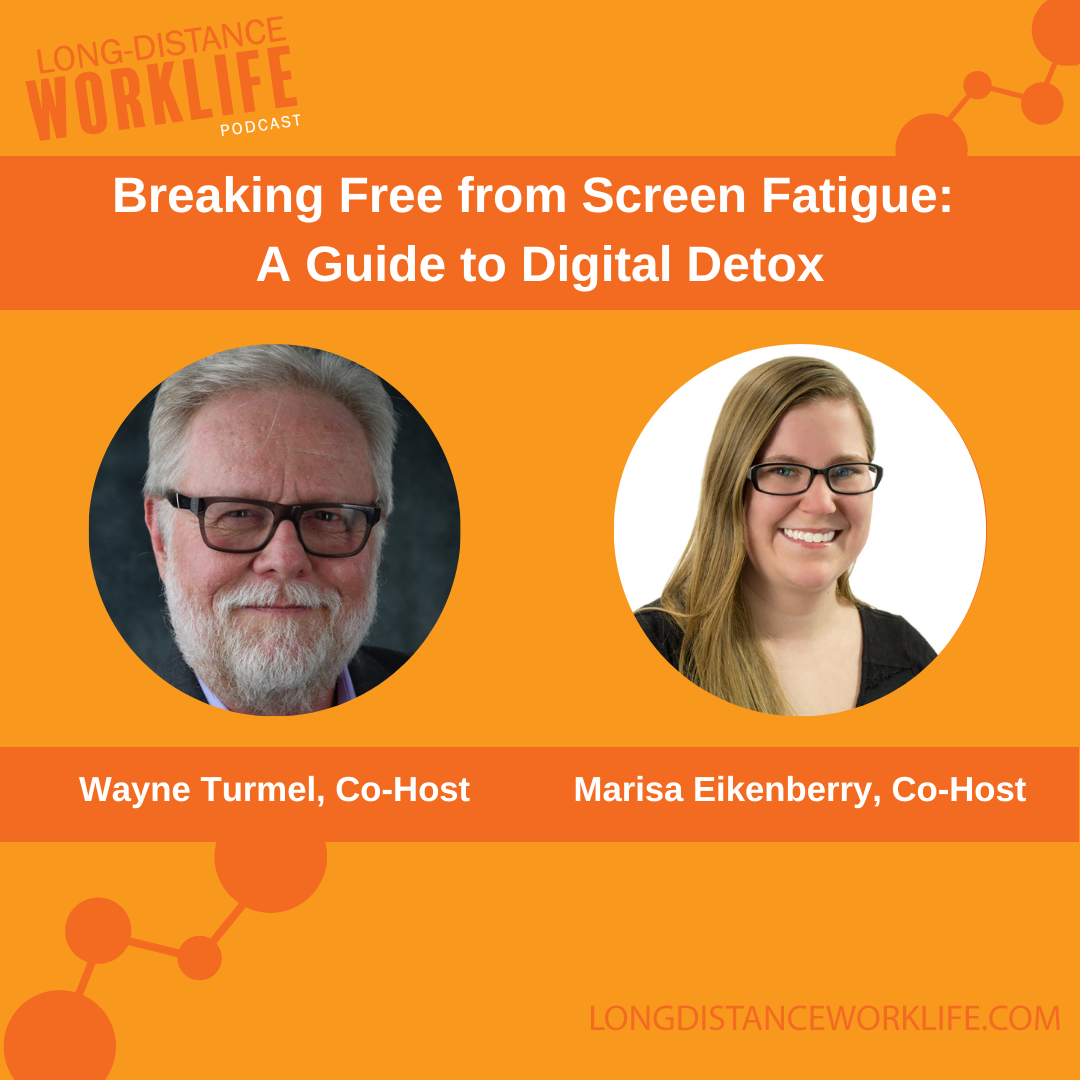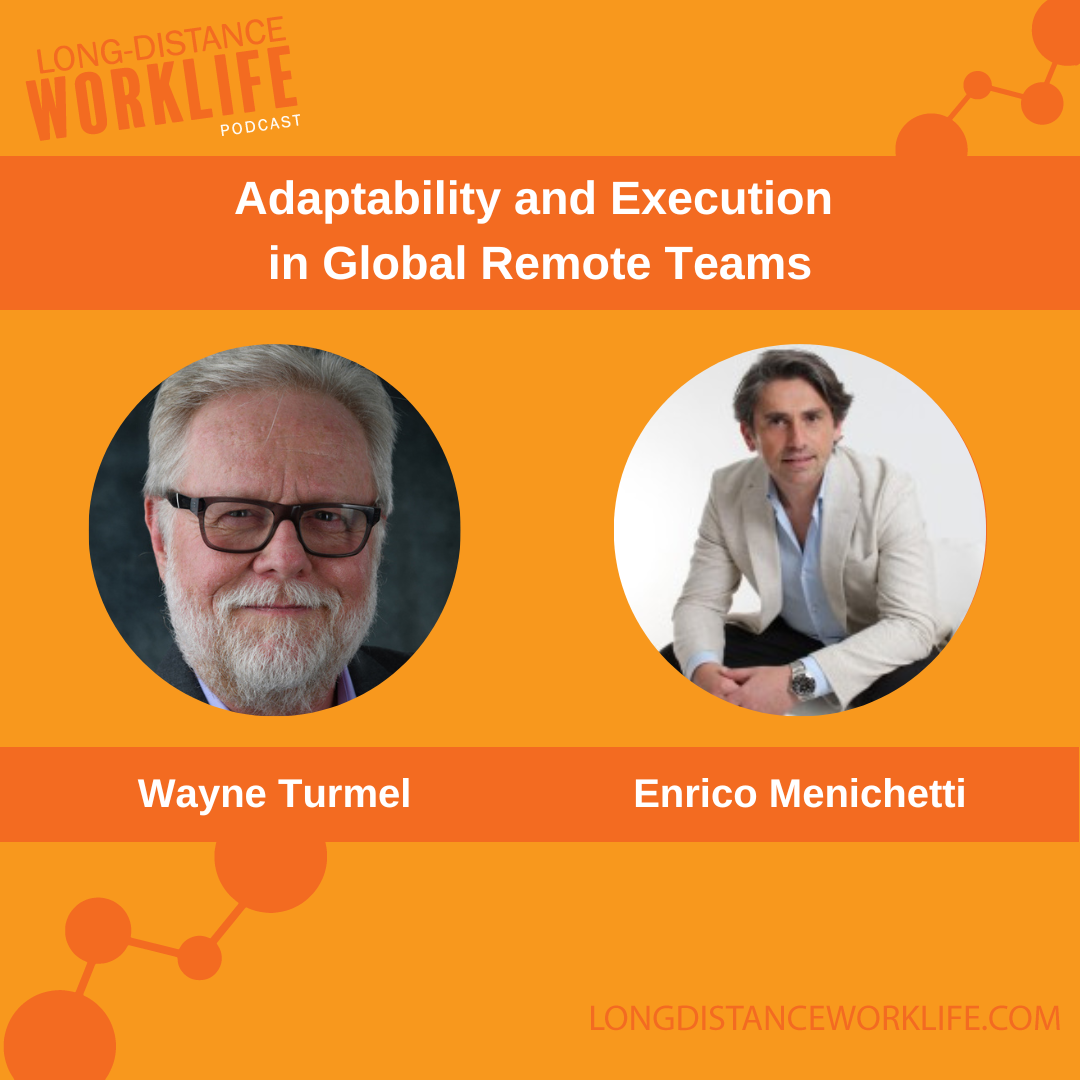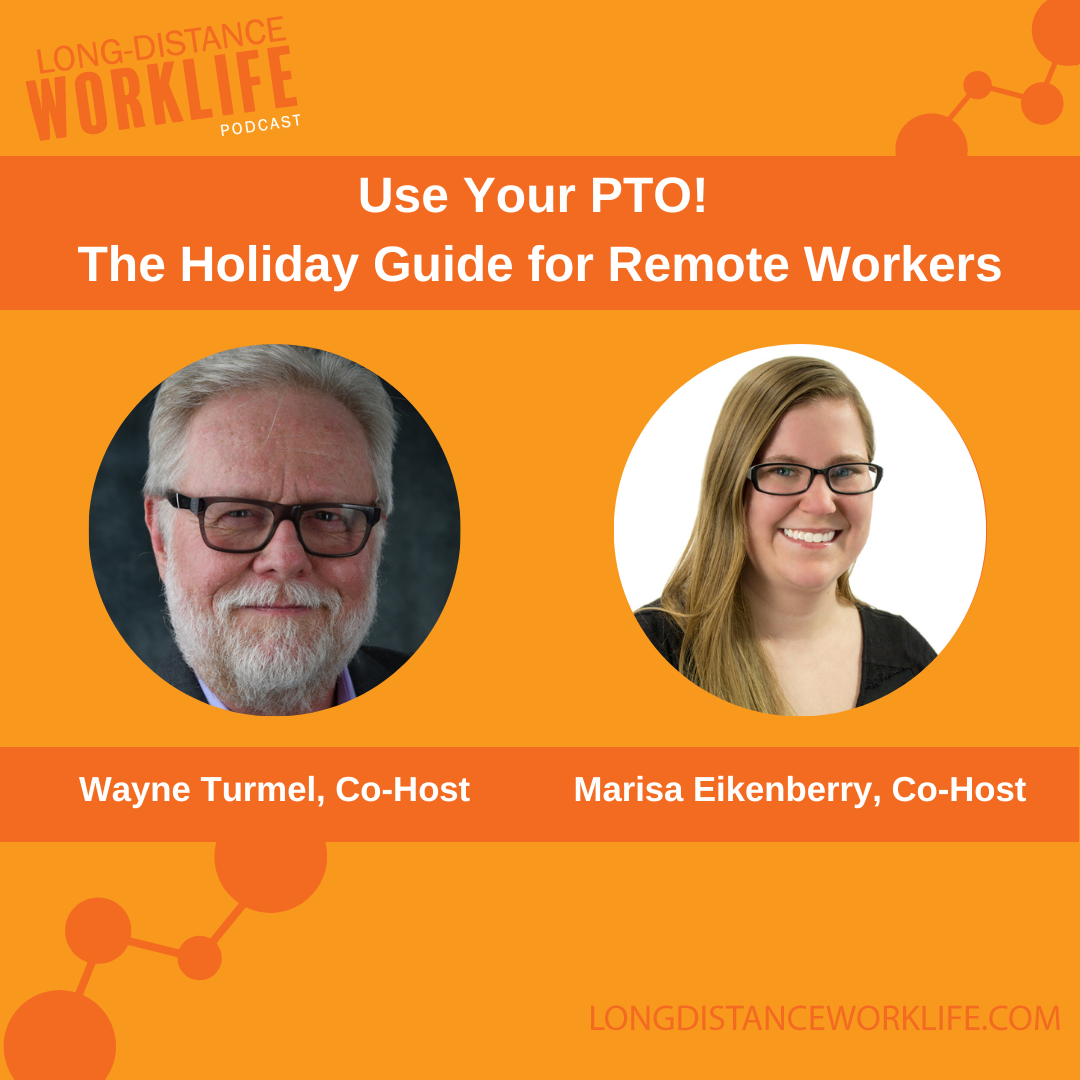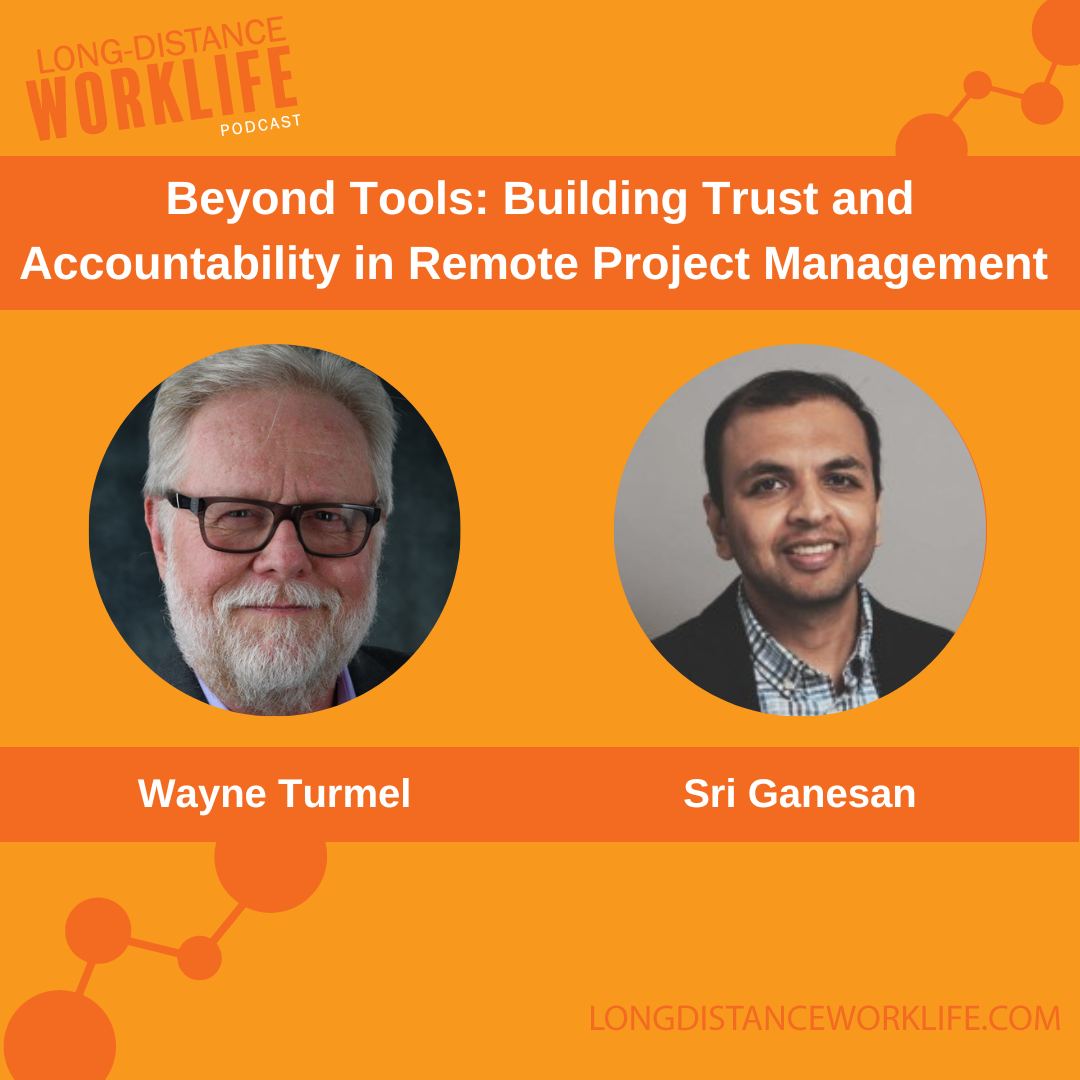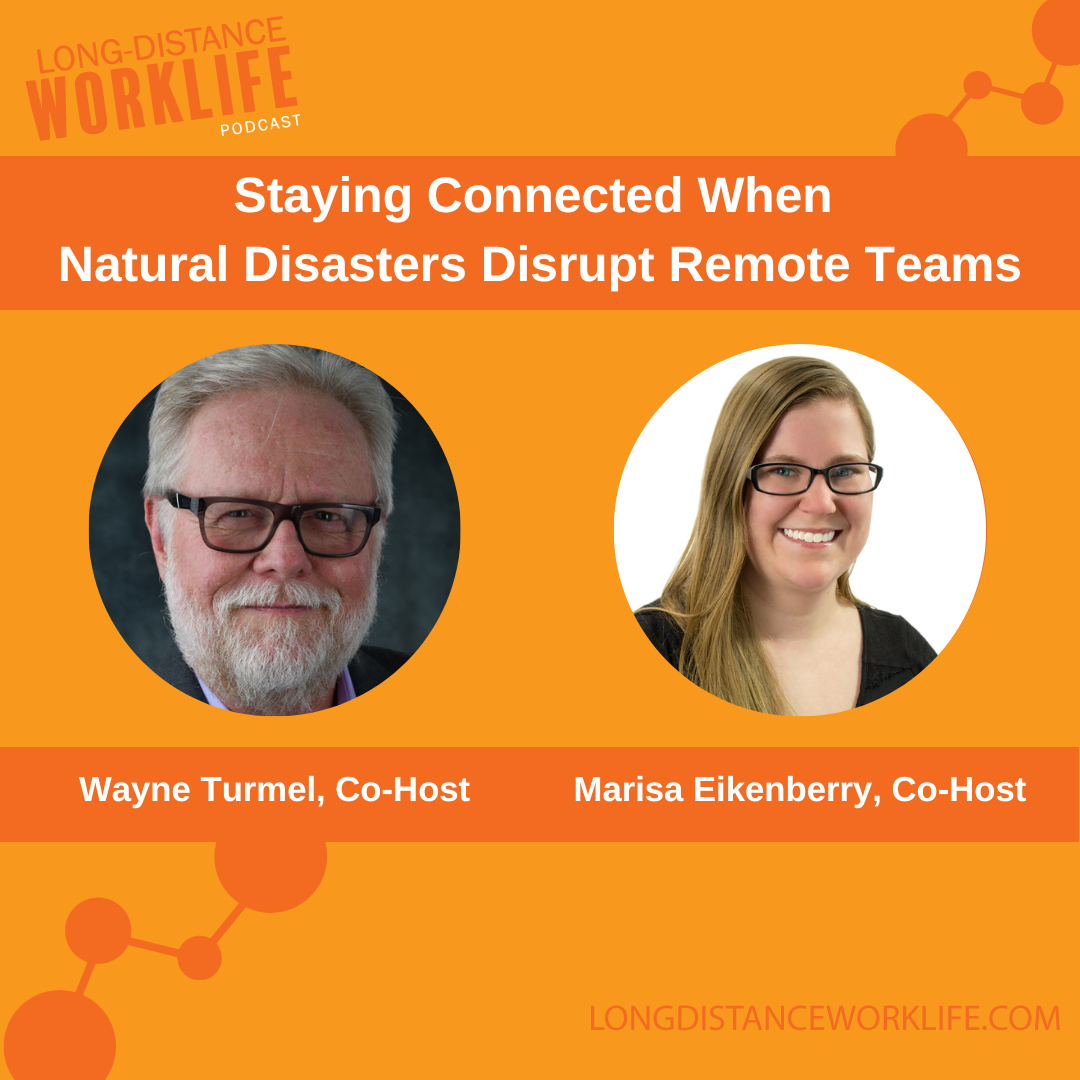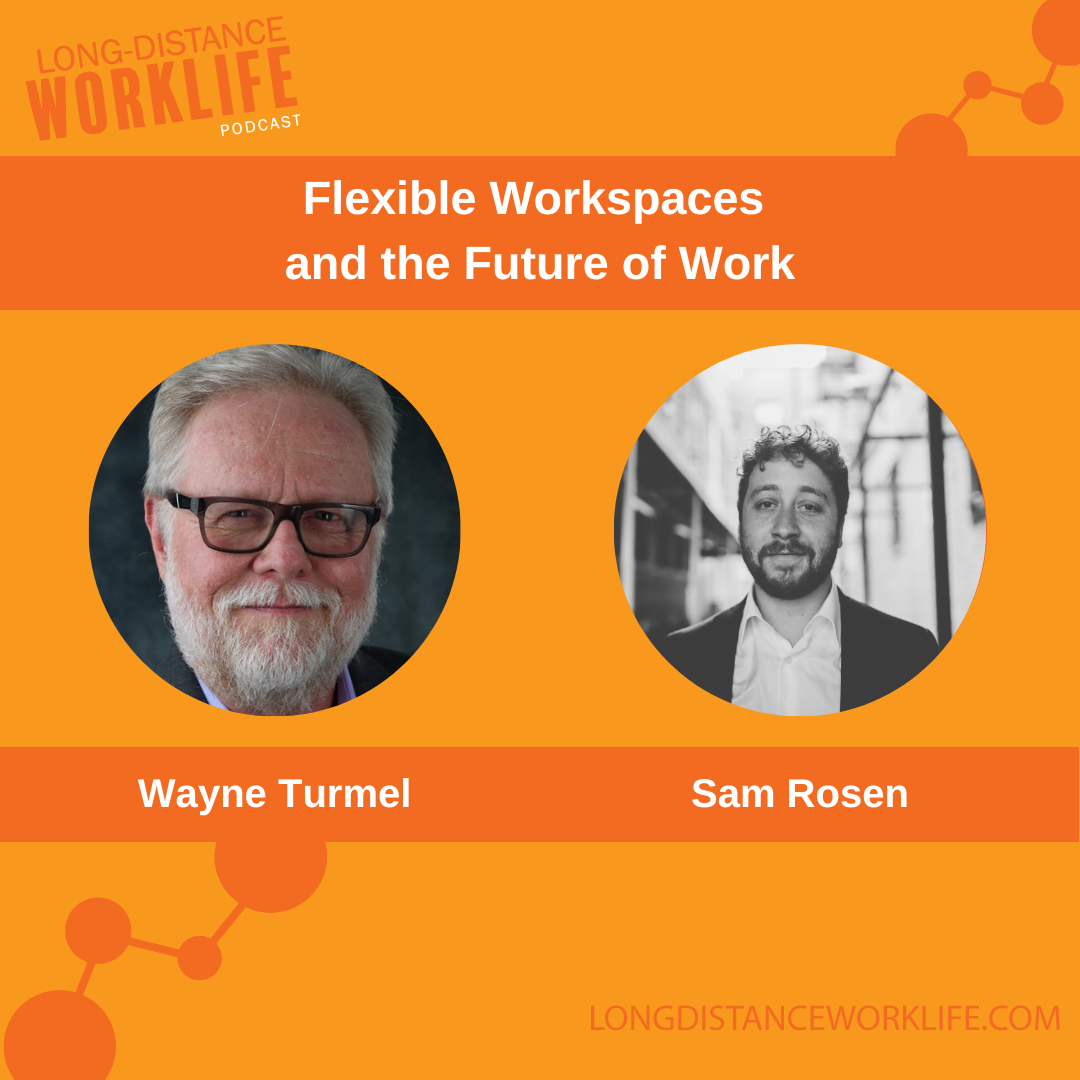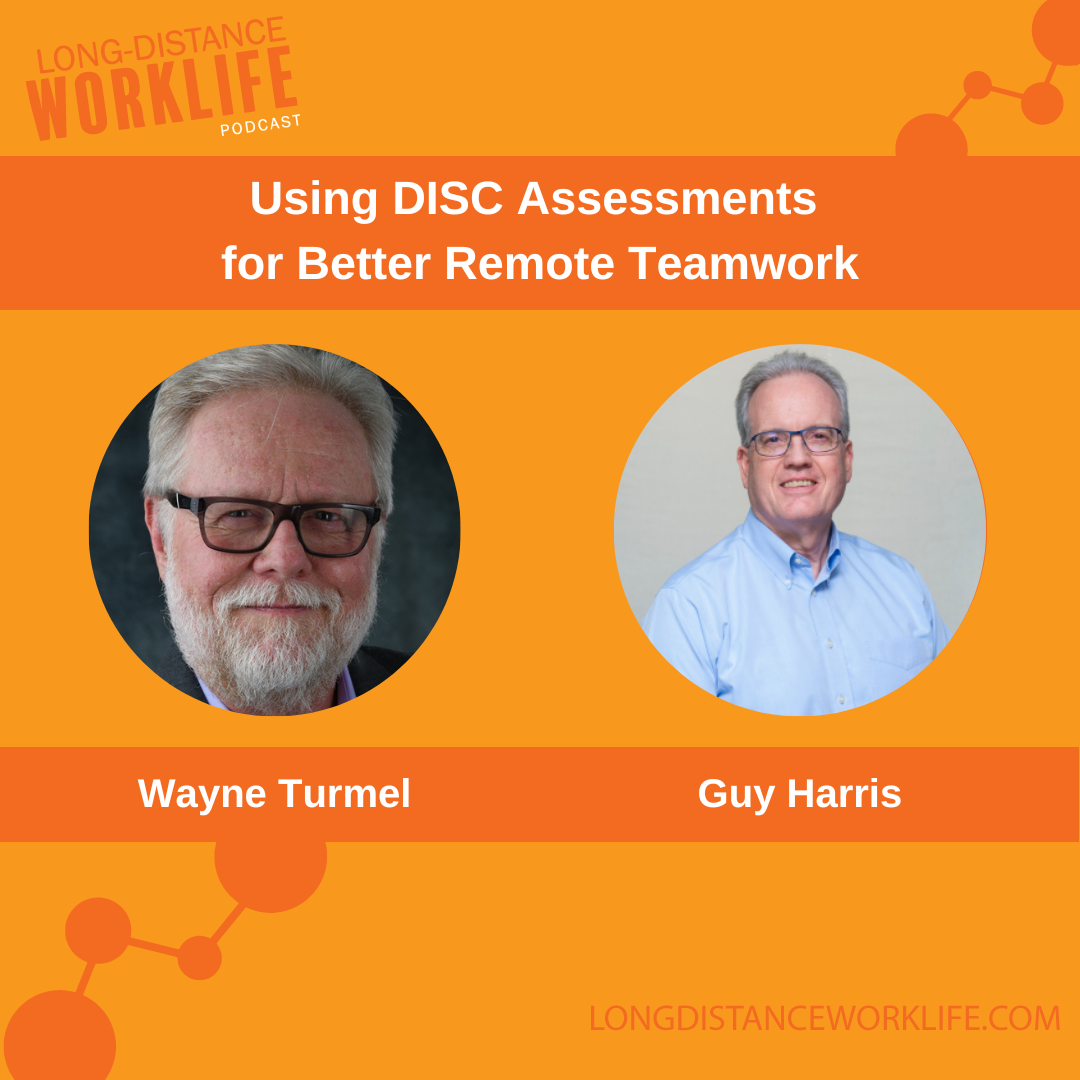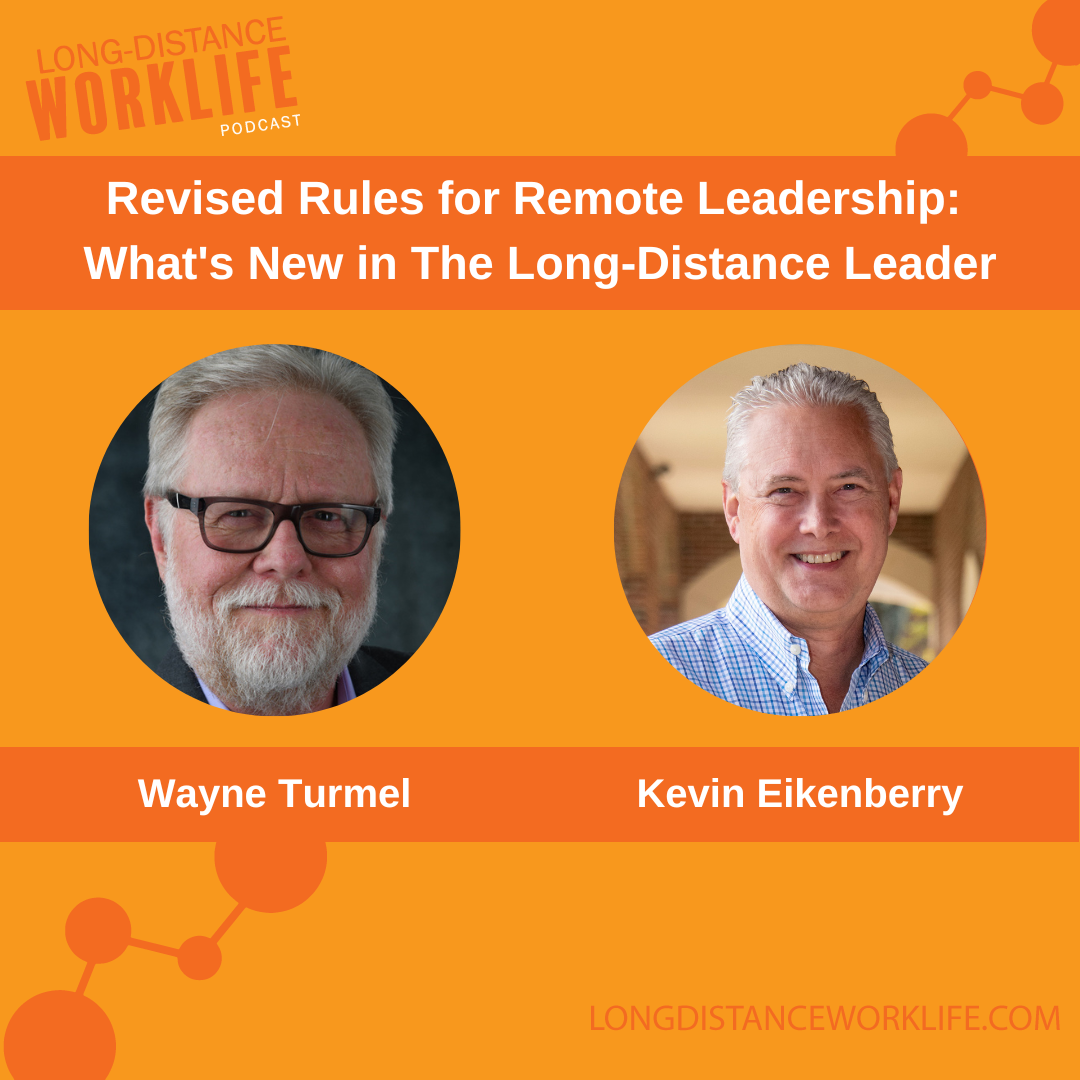The idea of giving up your personal desk—does it make you cringe or cheer? Many organizations are moving toward a hoteling model to save costs and accommodate hybrid work, but making it work smoothly is another story.
In this episode, Wayne Turmel and Marisa Eikenberry tackle the challenges of hoteling, from loss of control and hygiene concerns to desk wars and office politics. Plus, they offer practical solutions for leaders to involve employees, test the model, and ensure a smoother transition.
Thanks to listener Benjamin for inspiring this conversation! If your organization is considering hoteling, this episode is for you.
Key Takeaways
1. Understand the Purpose of Hoteling – Hoteling is a flexible seating arrangement where employees don’t have assigned desks, allowing companies to optimize office space while accommodating hybrid work schedules.
2. Address Employee Concerns Proactively – Employees may feel uneasy about losing their personal space, dealing with hygiene concerns, or setting up/breaking down their workstations daily. Leaders should acknowledge these concerns and create solutions in advance.
3. Create a Comfortable and Hygienic Workspace – Provide cleaning supplies, encourage good desk etiquette, and ensure employees have access to sanitized and well-maintained shared workspaces.
4. Equip Employees for Success – Reduce daily setup stress by offering lockers, duplicate equipment (mice, keyboards, monitors), and designated storage areas so employees don’t have to carry everything back and forth.
5. Involve Teams in the Transition – Instead of enforcing top-down changes, engage employees in discussions about hoteling logistics, scheduling, and workspace preferences. Address concerns before implementation.
6. Test Before Committing – Pilot the hoteling model for a limited time before making it permanent. Gather feedback and make necessary adjustments based on employee experiences.
7. Balance Cost-Savings with Employee Needs – While reducing office space saves money, organizations must also invest in tools, processes, and amenities that make shared workspaces efficient and employee-friendly.
8. Recognize Routine Disruptions & Help Teams Adapt – Change is hard, and employees may struggle with losing familiar setups. Help them establish new habits by creating structured, predictable hoteling systems.
9. Encourage Open Communication – Employees should feel comfortable sharing feedback and proposing adjustments to the hoteling system to ensure it works effectively for everyone.
10. Remember, Adaptation Takes Time – While initial resistance is natural, teams will eventually develop new habits and find stability in the hoteling environment. Patience and flexibility are key!
00;00;00;03 - 00;00;20;13
Marisa Eikenberry
Because the idea of giving up your desk for more remote flexibility make you cringe or cheer. Many organizations are grappling with this exact dilemma. If you're considering a hotel model to save money and embrace hybrid work, you're not alone. But how do you make it work for everyone involved?
00;00;20;15 - 00;00;36;11
Marisa Eikenberry
You. Welcome back to long distance Workplace. We help you live, work and thrive in remote and hybrid teams. I'm Russell. I can be a fellow remote worker. And as always, joining me as my co-host and remote work expert, Wayne Trammell. Hi, Wayne.
00;00;36;14 - 00;00;40;17
Wayne Turmel
As always, because there's no escape. He's freaking everywhere.
00;00;40;19 - 00;00;45;00
Marisa Eikenberry
But we are always here. We live in the computer.
00;00;45;03 - 00;00;48;24
Wayne Turmel
Indeed. We live in this little box. Hello.
00;00;48;26 - 00;01;12;20
Marisa Eikenberry
Well, today we are actually inspired by a listener question. And today we're diving into the challenges of transitioning to a hotel and model while supporting employees who want flexibility through remote work. So, Benjamin, the person who sent us this question, thank you so much for your thoughtful email that led us to this, the situation that many organizations are navigating as they rethink office spaces and work styles.
00;01;12;23 - 00;01;21;02
Marisa Eikenberry
So we're really, really excited to get into this. But, Wayne, for some of our listeners that may not be familiar. Can we just do a quick definition of what hotel room is?
00;01;21;06 - 00;01;44;09
Wayne Turmel
It's a weird word. I don't know how it became the word. I think it's it's kind of the mental model of staying in a hotel versus having a space of your permanent space of your own, right? That when you check into a hotel, you don't know which room you're getting. You don't really know. I mean, Hamptons all look alike, right?
00;01;44;09 - 00;01;56;12
Wayne Turmel
But but it's not your. And it's not your room. There are things that you can do in a hotel room. There are things that you shouldn't do in a hotel room because it's not your space.
00;01;56;15 - 00;01;56;24
Marisa Eikenberry
Right?
00;01;57;02 - 00;02;28;04
Wayne Turmel
And I think it's as good a word as any, but it does. It's funny. It creates far more drama than we think it should. And I'll give you the example. And not everybody will relate to this, but I do, which is I grew up in a small town, went to a small town church, and while in churches there are no assigned seats per se, everybody knows where Mrs. Williams sits, right?
00;02;28;06 - 00;02;30;14
Marisa Eikenberry
And God forbid, literally.
00;02;30;16 - 00;02;56;02
Wayne Turmel
That's you take that spot at your peril. So even though officially you sit anywhere you want, everybody has their pew. They sit in the same place every week. They sit there, they're comfortable there. They are close enough or far enough from the pastor's burning eyes. They are easy access to the exits out. Whatever you're.
00;02;56;02 - 00;02;57;03
Marisa Eikenberry
Praying.
00;02;57;05 - 00;03;30;21
Wayne Turmel
For. Choosing a seat in church. And while there are no official seats, when somebody is in your seat, it gets really uncomfortable and that's the best analogy that I can come up with. So the way that hotel I usually works is rather than, you know, there's a cube farm and you everybody has a seat assigned to them because, you know, it's Tuesday and only have two people come in on Tuesday.
00;03;30;27 - 00;04;04;21
Wayne Turmel
We have just slightly over more than half of the normal number of desks, and people kind of grab whatever's open and they set up and they do their work, and then they go home. And on paper that sounds extremely reasonable. And what's the big deal? The problem is you are dealing with human beings who are notoriously irrational. And so there are a couple of reasons that people get freaked out about this.
00;04;04;23 - 00;04;12;05
Wayne Turmel
And as with everything with people when I say them, a lot of people are going to go, that's not a big deal.
00;04;12;07 - 00;04;14;18
Marisa Eikenberry
Except it's a big deal.
00;04;14;18 - 00;04;49;09
Wayne Turmel
Human being. Humans are going to human. Yeah. So some of it is a simple matter of lack of control. When I come in, I like what I like. I like the view out the window. I like to see the coffee break room. I want my back to the coffee break room. Whatever it is we we have basically a set of esthetics that we like when we work and when we don't have control over that, that becomes a thing.
00;04;49;11 - 00;04;55;21
Wayne Turmel
There are a few other things, some of which make no difference to me, but they might.
00;04;55;22 - 00;04;56;04
Marisa Eikenberry
Just somebody.
00;04;56;07 - 00;05;16;18
Wayne Turmel
They are going to make differences to somebody, one of which is hygiene concerns. Okay. I don't know who was at this desk last. I don't know what cooties they had. I don't know what their personal hygiene is like. God only knows what they've done to that keyboard.
00;05;16;20 - 00;05;18;20
Marisa Eikenberry
Lysol was everywhere.
00;05;18;22 - 00;05;45;04
Wayne Turmel
Yeah, exactly. So part of if you're going to bring in a hotel situation is you need to make sure that you have things like sterile wipes at every desk and bottles of Lysol and those types of things. Because while I'm pretty much, I mean, I, I clean up after myself. I'm not a complete slob, but that's not top of mind for me.
00;05;45;04 - 00;05;48;20
Wayne Turmel
It's going to be top of mind for some people, right?
00;05;48;22 - 00;05;55;10
Marisa Eikenberry
Yeah, I'm with you. It's not a big deal for me. But like, now that you said it, it's like, oh yeah, okay, I can see it now.
00;05;55;12 - 00;06;16;29
Wayne Turmel
Yeah. I mean, especially because the whole reason most of us wound up working from home was cooties. And so it's going to be part of the thinking, another thing is that and again, it sounds minor and it's really not, which is you need to set up and break down every day.
00;06;17;01 - 00;06;27;21
Marisa Eikenberry
Yeah. And oh, God, I forgot the my specific pens that I really like to bring or I forgot my mouse. I've done that before and that sucks.
00;06;27;23 - 00;06;58;20
Wayne Turmel
Oh, we've all done it. And you know this idea of okay, so now I'm schlepping to the office, so I've got my backpack, which now has my laptop and my mouse and whatever else in there. It's just a bigger deal every day. Getting ready to go to work is more hassle. It takes time to set up. It takes time to break down at the end of the day, you've got to put that backpack on, which now somehow weighs 20 pounds more than it did when you came in in the morning.
00;06;58;22 - 00;07;13;15
Wayne Turmel
So there's what is this do to your day? What does this do to the setup? Right. And so some of that may be a loss of productivity. I'm not using my mouse.
00;07;13;17 - 00;07;15;27
Marisa Eikenberry
Yeah. My horse or whatever.
00;07;15;29 - 00;07;52;26
Wayne Turmel
Yeah. And there are simple ways to avoid this, right. Duplicate mice. Right. One at home, one at the office. So, so this is a thing that organizations can do, and it's not quite kindergarten. Everybody has their own cubby. But I think that lockers where people can keep their equipment, that meant that they use in the office so that you don't have to schlep it back and forth so that you can have duplicates so that it's already there, and you can very easily set it up.
00;07;52;29 - 00;08;11;07
Wayne Turmel
We'll actually take some of this strain off. It's going to require developing new routines and developing new socks. We all know that. But, you know, things like that can make it less awkward and weird.
00;08;11;09 - 00;08;14;26
Marisa Eikenberry
Right?
00;08;14;29 - 00;08;43;03
Wayne Turmel
One of the one of the reasons that people don't like it as well is, you know, when I have my desk, I've got a picture of my wife and kids or, you know, Mr. Whiskers in a holiday outfit and there's stuff on my desk that is mine, and that's not going to be there, you know? Right. Situation, you know.
00;08;43;03 - 00;08;49;21
Wayne Turmel
And what are the rules around personalization and what can you do?
00;08;49;24 - 00;08;55;27
Marisa Eikenberry
Yeah. You're not necessarily sitting at the same desk every time where you can have that kind of stuff.
00;08;56;00 - 00;09;00;27
Wayne Turmel
Well, and you know there are drawers. What do we keep in the drawers.
00;09;00;29 - 00;09;07;08
Marisa Eikenberry
Right. Yeah. It's like, you know, there's storage or whatever is mine.
00;09;07;08 - 00;09;24;13
Wayne Turmel
Is there. So we need to address those. And, and this means we need to address them far in advance of it being an issue. So how these conversations need to be had before the magic wand is waved.
00;09;24;16 - 00;09;45;14
Marisa Eikenberry
Well, that's exactly where I was getting to is like, what are some ways that leaders can involve employees in the process? You've talked about some ways that, you know, they can already, think about doing stuff like Lysol and having cubbies for stuff and all that. But like, what kinds of things should they be doing to involve their employees in the process of doing this?
00;09;45;16 - 00;10;09;00
Wayne Turmel
There is a huge conversation which will be uncomfortable and is going to make a lot of people feel weird. But here's the thing everybody wants their desk, but they only want to be added a couple of days a week. Well, what this means in the long run is that the organization is paying for space that is not being used right.
00;10;09;02 - 00;10;34;25
Wayne Turmel
One of the things driving the return to office is the CEO comes out of her office and looks around at all this stuff that is costing X dollars per square foot and nobody is there. And so the organization is paying for space, equipment, things that they are not getting a return on. This is a legitimate concern.
00;10;34;28 - 00;10;35;22
Marisa Eikenberry
Right? Absolutely.
00;10;35;22 - 00;10;36;25
Wayne Turmel
They're not doing their money's worth.
00;10;36;26 - 00;10;38;05
Marisa Eikenberry
Right.
00;10;38;08 - 00;11;09;06
Wayne Turmel
Why are we paying for three floors in a building if we could arrange our schedule, accommodate everybody two days a week, and not have to pay for all that square footage, that is a legit business conversation, right? And employees need to care. Because if it comes down to we're paying for all this space and the employees are whining, right?
00;11;09;08 - 00;11;17;20
Wayne Turmel
Whining loose, right? It needs to be a discussion about mutual benefits and concerns.
00;11;17;23 - 00;11;20;04
Marisa Eikenberry
So how can they manage some of that?
00;11;20;09 - 00;11;38;21
Wayne Turmel
Well, again, it's here are the reasons we want to go to hotel. You have said you only want to come in occasionally. You only want to come in a couple of days a week. And we can arrange this so that we clearly don't need this many desks.
00;11;38;29 - 00;11;40;02
Marisa Eikenberry
Right.
00;11;40;05 - 00;12;11;03
Wayne Turmel
And you have concerns about privacy in this in that. So how do we address that? And there needs to be a real harsh conversation around what's negotiable and what's not negotiable. If you've decided as a group of employees, two days a week in the office is plenty, you can't complain about the fact that some of the things that we are paying for are going to go away, right?
00;12;11;03 - 00;12;16;12
Marisa Eikenberry
It's like it's the consequences of the things that you want, right? It's like you can have your cake and eat it too.
00;12;16;14 - 00;12;48;19
Wayne Turmel
So which do you want more? And that just needs to be a real, honest conversation. And some organizations are much better about that than others right now. Maybe this can be done on a team basis if your office is set up so that, you know, this bullpen is salespeople and this group of people are admins. And however that set up, as a team, talk about what do we need?
00;12;48;21 - 00;12;50;19
Marisa Eikenberry
00;12;50;21 - 00;13;10;16
Wayne Turmel
You also need to prioritize what is important to you. Do you need a window? Okay. Some people do. Some people they need daylight. They need vitamin D. They need to be able to when they're thinking look out the window. Other people get distracted by looking.
00;13;10;16 - 00;13;11;16
Marisa Eikenberry
At the right.
00;13;11;18 - 00;13;33;16
Wayne Turmel
Do you want to be near the bathroom? Do you not want to be near the bathroom? Those types of things, because on a small team, often we self-select anyway. Right. If I'm in Monday and Wednesday and you're in Tuesday and Thursday and we decide we're going to share a desk and nobody else cares, great. There's your answer, right?
00;13;33;18 - 00;13;36;16
Marisa Eikenberry
That makes it easy.
00;13;36;18 - 00;13;43;17
Wayne Turmel
So, you know, if you can do that on a team basis, it's certainly going to be easier.
00;13;43;19 - 00;14;10;04
Marisa Eikenberry
Right? Well, and I could see to the idea of, you know, this group is needs quiet work to do or quieter or work to do something. Yeah, you're web developers or something like that. Whereas you know, your sales team or your marketing team, they might be louder, but, you know, so it's like, is there a sound issue also to consider about where they sent me office, or that these two teams should not come in on the same day or whatever?
00;14;10;06 - 00;14;40;09
Wayne Turmel
Exactly. There are ways to address this. Maybe conference rooms is the answer, right? Right. There are rooms for conversation. Take advantage of those. Yeah. So these are the kinds of things that you need to consider. And I would suggest just as individuals what's important to you. Right. Think about what is your routine. What is your daily routine look like when you go to the office?
00;14;40;09 - 00;14;41;27
Wayne Turmel
What is important to you?
00;14;41;29 - 00;14;44;02
Marisa Eikenberry
00;14;44;05 - 00;14;54;14
Wayne Turmel
And then talk to your teammates and say, hey, I really, really like the idea of the window. Do you mind if I have that.
00;14;54;17 - 00;14;58;06
Marisa Eikenberry
You know, and then fight to the death if you need to.
00;14;58;08 - 00;15;05;26
Wayne Turmel
You know, it's it's a great it's a great team building exercise to have gladiator battles in the middle of the year.
00;15;05;27 - 00;15;08;15
Marisa Eikenberry
Right. Certainly.
00;15;08;15 - 00;15;09;17
Wayne Turmel
A lot of this.
00;15;09;18 - 00;15;11;02
Marisa Eikenberry
The story. Oh.
00;15;11;04 - 00;15;18;12
Wayne Turmel
Well, just a lot of this is boils down to a cultural resistance to change.
00;15;18;14 - 00;15;20;25
Marisa Eikenberry
Which is going to happen no matter what you do.
00;15;20;27 - 00;15;50;05
Wayne Turmel
Which is going to happen. It's going to be awkward and weird. The more we discuss it, the more we recognize what the stressors are. Right. What is it that you're concerned about. Right. And then how do we address it. I always come back to an example in the early days of Covid that I was talking to to a team, and this almost became equitable issue.
00;15;50;07 - 00;15;51;14
Marisa Eikenberry
Wow. Okay.
00;15;51;16 - 00;16;12;17
Wayne Turmel
Is they made somebody said they made me come home and I've got my laptop, I have this big tower and a desk and a keyboard and multiple screens, and it's great at work. And I came home and I've got this stupid little laptop and this little rubber dealy that I'm supposed to use instead of a mouse. And I said, well, why don't you just buy a mouse?
00;16;12;17 - 00;16;14;26
Marisa Eikenberry
They're like, right, that would be.
00;16;14;28 - 00;16;47;05
Wayne Turmel
Their $9 at Walgreens. You know, just buy one. And his issue was, I shouldn't have to be out of pocket to do work for them when this change is being driven by them. And I get, okay, I can see that. Have you talked to your manager about this? Yes. Well, the policy is the manager is sticking by the policy that we don't pay for equipment that's not being used in the office.
00;16;47;08 - 00;16;56;26
Wayne Turmel
And so there's a showdown over a $9 mouse. Now, is the $9 mouse really the issue?
00;16;56;28 - 00;16;57;23
Marisa Eikenberry
No.
00;16;57;25 - 00;17;18;04
Wayne Turmel
No, it's you are asking me to work in a certain way, and you are not giving me what I require to do my job. So you are adding to my inconvenience. And oh, by the way, it's costing me money that I don't want to pay for something that I don't want to do, right.
00;17;18;07 - 00;17;21;19
Marisa Eikenberry
Yeah. The underlying issue that nobody really wants to say.
00;17;21;21 - 00;17;48;10
Wayne Turmel
So this is going to get to, you know what? You're saving $2,500 a month on square footage, spring for lockers, spring for duplicate duplicate equipment. So people have mice at their desk. Maybe there is a camera at every desk that people can use when they're there, and they don't have to break down their own camera and bring it to work every day.
00;17;48;12 - 00;18;11;04
Wayne Turmel
It's so often we have said, it's the little things, right? It's the thousand little pinpricks that lead to war, that have a pebble in your shoe that if you can handle those, make the larger issues much easier to discuss and deal with.
00;18;11;06 - 00;18;30;09
Marisa Eikenberry
And so before we wrap up, I do have one last question for you, but it's so for organizations who are thinking about trying hotel and and maybe they've, you know, not done that previously, what kinds of things that they can do to like pilot these programs, test and fine tune and roll them out to their teams. Like, I guess first steps.
00;18;30;11 - 00;18;40;17
Wayne Turmel
Yeah. Well, you use the word pilot before a policy. It's like literally, let's try this for two months and see how it works.
00;18;40;19 - 00;18;42;01
Marisa Eikenberry
00;18;42;03 - 00;18;56;02
Wayne Turmel
Rather than this is what we are going to do. And if you don't like it or you make the wrong choice or you think you want to be near the bathroom and you find that too distracting, sucks to be you, right?
00;18;56;02 - 00;18;58;20
Marisa Eikenberry
You make your choice. Now you have to live with it, right?
00;18;58;22 - 00;19;14;24
Wayne Turmel
Know people don't always know what they're choosing, and they may decide. And we may decide that, you know what, the same people take the same hotel desks all the time. And it really, after the initial chaos, isn't that big a deal.
00;19;14;26 - 00;19;16;22
Marisa Eikenberry
00;19;16;25 - 00;19;24;24
Wayne Turmel
Right. I'm working with the same people every Tuesday and Tuesday we show up and we go to the desk. We always go to a, nobody has an issue with it.
00;19;24;27 - 00;19;27;08
Marisa Eikenberry
Right. You get used to it.
00;19;27;10 - 00;19;40;26
Wayne Turmel
So identify the barriers, address or mitigate as many of them as you can. Make it easy for people to hotel.
00;19;40;29 - 00;19;43;26
Marisa Eikenberry
00;19;43;29 - 00;20;05;22
Wayne Turmel
And then try it and see what works and what you need to fix. You need to fix and you will eventually settle into a rhythm that works for you. Human beings like routine. We, you know when our routines get disrupted we freak out. When do we stop freaking out? When we have established a new routine.
00;20;05;24 - 00;20;10;11
Marisa Eikenberry
Right? Which I mean, really is also where some of this boils down to to begin with.
00;20;10;11 - 00;20;28;06
Wayne Turmel
And and there's a paradox here. On the one hand, this is not as momentous or even insane a change as it feels like. And at some point you will get over it and deal with it.
00;20;28;08 - 00;20;28;25
Marisa Eikenberry
Right.
00;20;28;27 - 00;20;43;20
Wayne Turmel
On the other hand, to diminish or to discount the very real feelings that people have, only make it harder to reach that new, that new rhythm and that new norm.
00;20;43;22 - 00;20;58;22
Marisa Eikenberry
Absolutely. Wayne, thank you so much for this conversation. I really hope that it was helpful for our listeners. And I know I learned a lot more about hotel later. Hot desking or you know whatever, whatever other name remote work wants to start calling it. Right.
00;20;58;24 - 00;21;06;10
Wayne Turmel
Well, it's so funny because the terminology changes all the time. I mean, hot desking. Who does that sound like? Fun.
00;21;06;12 - 00;21;24;26
Marisa Eikenberry
I was going to say. I think that's what we called it last year. I, we did a whole episode about. I'll have to link it in the show notes. So at first it was like, wait, what's hotel? And I know Hot Desk, who knows? So listeners, you may be listening to this a year or so from now and have no idea what we're talking about.
00;21;24;29 - 00;21;30;23
Marisa Eikenberry
Or it's called something else. So it just goes to show how fast things are changing. But before we go.
00;21;31;00 - 00;21;45;00
Wayne Turmel
But tell us what what are your thoughts on this? I mean, we're sitting here being all very wise on the mountain. Here are the things you can do. What's your experience? Yeah. And what's worked for you and what hasn't. Tell us.
00;21;45;03 - 00;22;06;10
Marisa Eikenberry
Yes. Yes, absolutely. We would love to share your thoughts and your questions. On another episode. But before we go, I do want to say that we're very excited to share the second edition of The Long Distance Leader. It's now available, and this updated guide is packed with actionable strategies to help you lead effectively in today's remote and hybrid environments.
00;22;06;12 - 00;22;32;03
Marisa Eikenberry
Don't wait. Order your copy at long distance work life.com/ldl and take your leadership skills to the next level. And thank you for listening to the long distance work life for Shownotes transcripts and other resources, make sure to visit Long Distance worklife.com if you enjoyed this episode, don't forget to subscribe so you never miss a future one. And while you're at it, leave us a rating or review on Apple or Spotify or wherever you're listening to this.
00;22;32;06 - 00;22;48;10
Marisa Eikenberry
It's quick and it helps us reach even more listeners just like you. And we would also love to hear from you, as Wayne already said. So reach out to us via email or LinkedIn using the links in our show notes, and let us know that you listen to this episode, or even suggest a topic for Wayne and I to tackle in a future episode.
00;22;48;17 - 00;23;06;20
Marisa Eikenberry
We would love to hear from you. And again to Benjamin, who sent this in. Thank you so much for reaching out to us so that we could have this conversation. And before we go, as Wayne likes to say, don't let the whistles get you down.
00;23;06;22 - 00;23;07;13
Marisa Eikenberry
Thank you.
Timestamps
00:00 Introduction
00:48 A listener question sparks today’s topic
01:21 What is hoteling? A quick definition
02:28 Why losing your assigned seat feels so personal
05:55 Hygiene concerns: Should you trust a shared desk?
07:16 Setup & breakdown: The hassle of moving every day
09:45 The business case: Why companies are pushing hoteling
12:11 The trade-offs of office space reduction
14:40 How teams can self-organize for smoother transitions
17:48 Small frustrations that create major workplace tensions
18:30 How to pilot a hoteling program before rolling it out
20:43 Final thoughts
Related Episodes
Additional Resources
- Learn more about Wayne Turmel
- Email Wayne Turmel
- Connect with Wayne Turmel on LinkedIn
- Learn more about Marisa Eikenberry
- Email Marisa Eikenberry
- Connect with Marisa Eikenberry on LinkedIn
- Purchase a copy of The Long-Distance Leader
- Purchase a copy of The Long-Distance Teammate
- Purchase a copy of The Long-Distance Team
- The Kevin Eikenberry Group
Order The Long-Distance Leader
Perfect your remote leadership skills with the updated edition of "The Long-Distance Leader" by Kevin Eikenberry and Wayne Turmel, featuring new principles and proven strategies for today's hybrid work environments.
